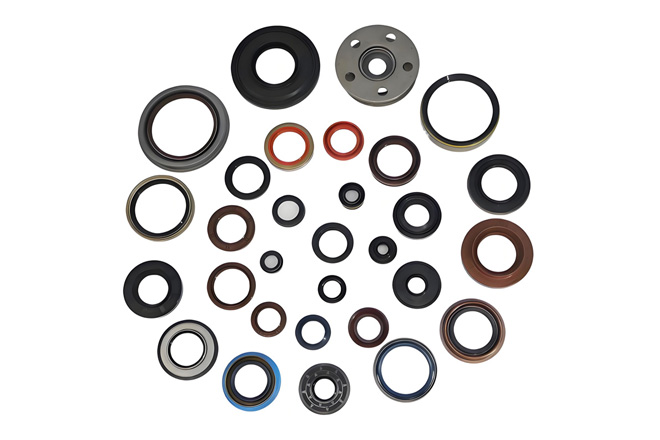Industrial oil seals are diverse, covering different structures, materials and applicable scenarios. The following are the main types and applications that are summarized:
Common types of industrial oil seals
Skeleton oil seals
Structural features: Built-in metal skeleton enhances stability, suitable for rotating shaft sealing.
Sub-types: Including TC oil seals, SC oil seals, TB oil seals, TA oil seals, etc.
Application scenarios: Automobile gearboxes, industrial reducers, hydraulic pumps, etc.
Fluororubber oil seals
Material properties: High temperature resistance (up to 250°C), corrosion resistance, anti-aging, suitable for extreme working conditions.
Typical applications: Chemical equipment, high temperature mechanical seals.
Hydraulic system oil seals
Functional requirements: High pressure resistance and impact resistance, such as hydraulic pump oil seals and hydraulic motor oil seals.
Representative products: Pressure-resistant oil seals (such as TCV).
High-pressure/high-speed oil seals
Technical features: Adapt to high-pressure (such as above 30MPa) or high-speed rotation (such as new energy equipment) environments.
Application areas: Industrial robots, high-pressure pumps, reducers.
Customized oil seals
Service model: Customize size, material or structure according to equipment requirements.
Features of DEDE industrial oil seals
Advantages: The product line covers skeleton oil seals and fluororubber oil seals, and the materials include nitrile rubber, fluororubber, etc., which are suitable for industrial equipment in multiple fields.
Certification standards: ISO9001, TS16949 and international standards.
he above is DEDE is introduction to mainstream industrial oil seal types. The specific selection needs to be combined with working conditions (such as pressure, temperature, medium) and equipment requirements.

